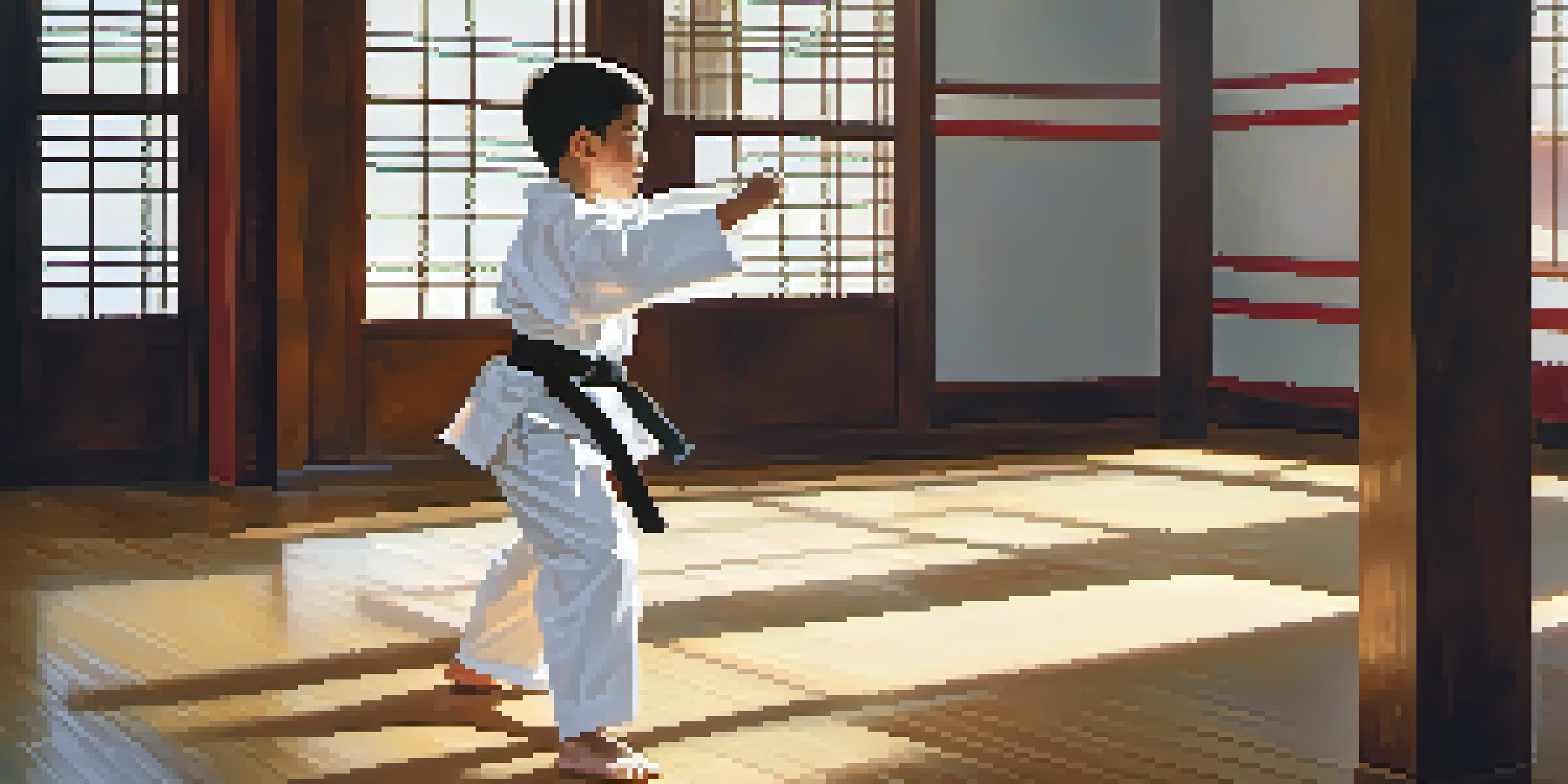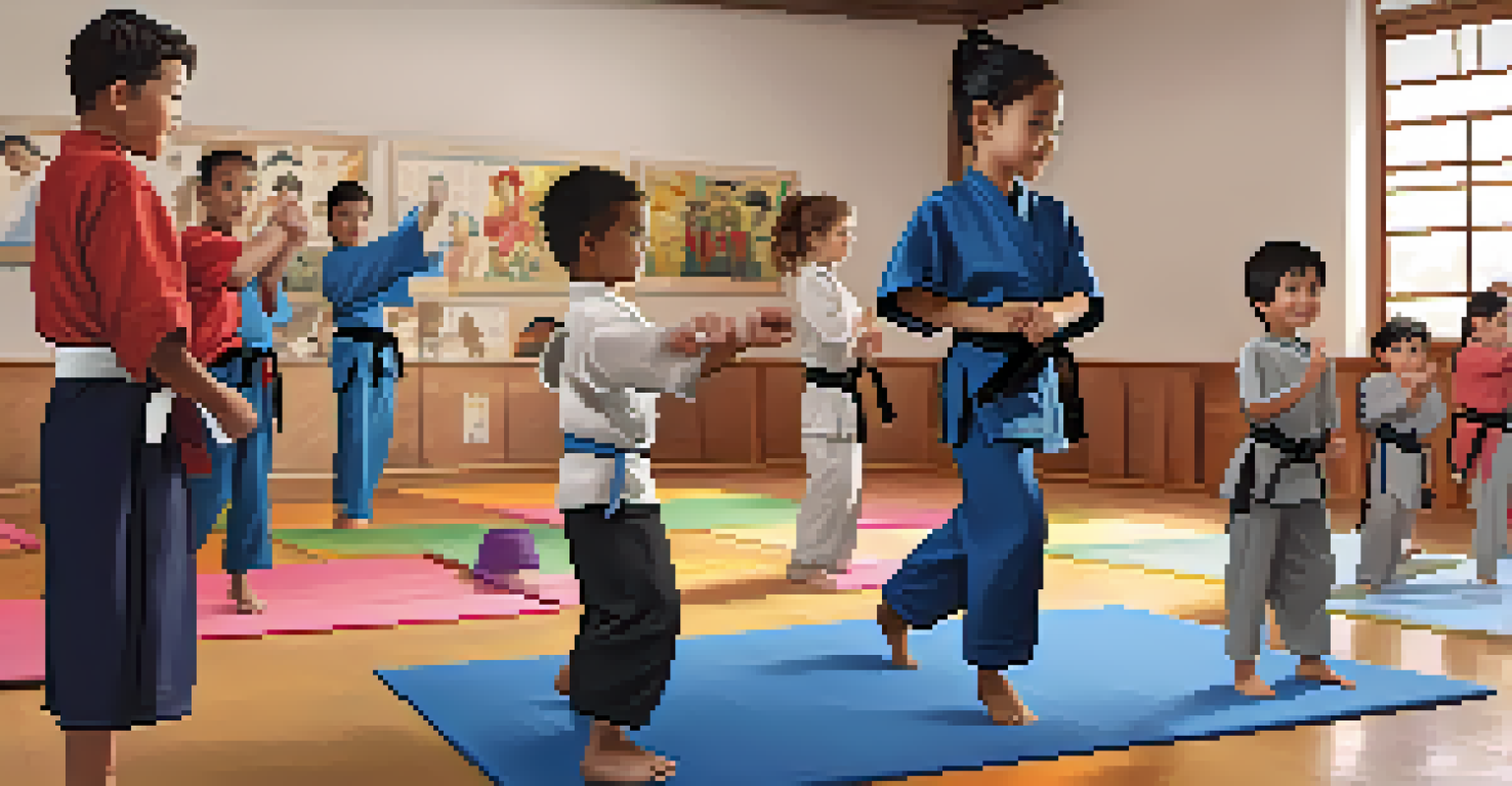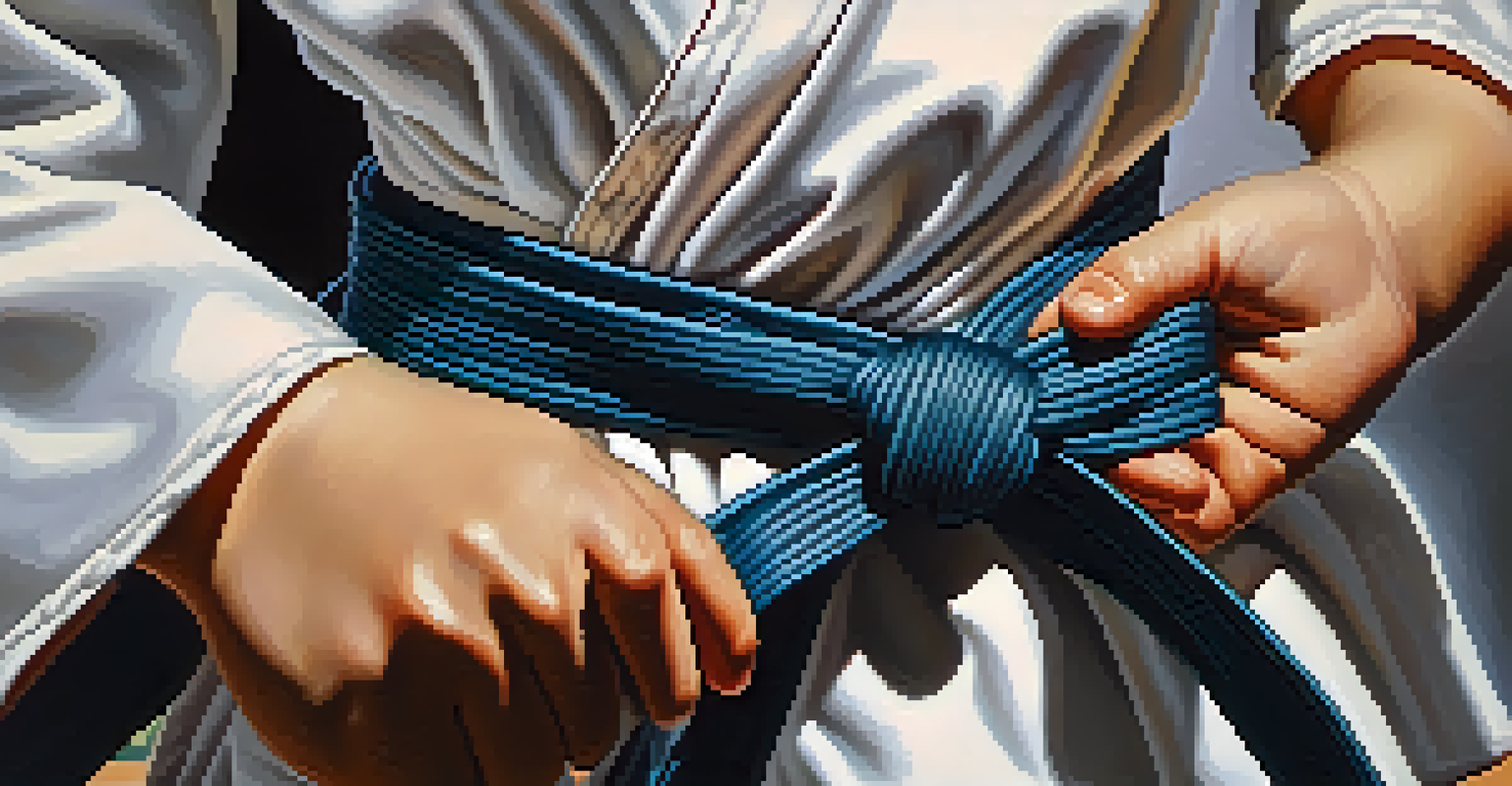Martial Arts and Its Impact on Physical Skills in Youth

Understanding Martial Arts: A Brief Overview
Martial arts encompass a variety of fighting styles and disciplines, each with its own philosophy and techniques. From karate to judo, these practices combine physical training with mental focus, making them appealing to youth. As children engage in martial arts, they not only learn how to defend themselves but also develop a sense of respect and discipline towards others.
The ultimate aim of martial arts is not having to use them.
The structured environment of martial arts classes teaches youth essential life skills such as perseverance, dedication, and teamwork. In this setting, students often work together, sparring and training alongside peers, which fosters camaraderie and mutual support. This social aspect can be particularly beneficial for youth as they navigate their formative years.
Moreover, martial arts serve as a healthy outlet for energy and aggression, which can be beneficial for children who may struggle with emotional regulation. As they practice techniques and routines, they channel their emotions into physical activity, resulting in improved focus and emotional stability.
Physical Benefits of Martial Arts Training
Engaging in martial arts significantly enhances physical skills in youth, such as strength, flexibility, and coordination. Various techniques require practitioners to perform dynamic movements, which help build muscle and improve overall fitness. For example, executing a roundhouse kick not only strengthens the legs but also enhances balance and core stability.

In addition to strength and flexibility, martial arts training improves cardiovascular health through rigorous, high-energy workouts. As participants practice drills and spar, their heart rates increase, leading to better endurance and stamina. This aspect is particularly important for children, as developing strong cardiovascular health early on lays the foundation for a healthier lifestyle later in life.
Martial Arts Boost Confidence
Through mastering techniques and achieving goals, youth gain self-esteem that positively impacts other areas of their lives.
Furthermore, martial arts often emphasizes the importance of proper posture and body alignment, which can benefit young athletes in any sport. By learning to control their bodies during various movements, youth can reduce the risk of injury and improve their overall athletic performance.
Building Confidence Through Martial Arts Skills
One of the most significant impacts of martial arts training on youth is the boost in self-confidence. As children master new techniques and achieve goals, they experience a sense of accomplishment that translates into other areas of their lives. For instance, successfully performing a difficult kata can lead to increased self-esteem during school presentations or social interactions.
Martial arts is not about fighting; it's about building character.
Martial arts also teach youth to face challenges head-on, whether it's stepping onto the mat for a sparring match or preparing for a belt promotion. This exposure to overcoming obstacles fosters resilience, an essential skill that will serve them well in various life situations. By learning to embrace challenges, young practitioners are better equipped to handle academic pressure or peer relationships.
Moreover, the supportive environment of martial arts classes encourages youth to be proud of their progress. Instructors often celebrate achievements, reinforcing the idea that effort and dedication are valued, regardless of the outcome. This positive reinforcement can cultivate a lifelong love for learning and self-improvement.
Discipline and Focus: Core Values in Martial Arts
Discipline is a fundamental principle of martial arts training, instilling a strong work ethic in young practitioners. Students quickly learn that progress depends on consistent practice and dedication, which translates into improved focus in their academic and personal lives. This focus is not just limited to physical training; it extends to developing a mindset that values hard work and perseverance.
In martial arts, students often set goals, whether it's achieving a new belt rank or mastering a complex technique. This goal-setting practice teaches youth to prioritize their time and efforts, helping them develop valuable organizational skills. As they work towards their objectives, they cultivate patience and an understanding that success takes time and persistence.
Physical and Emotional Growth
Martial arts training enhances physical fitness while also teaching emotional resilience, helping youth navigate challenges effectively.
Additionally, the structured nature of martial arts classes requires students to pay attention and follow instructions closely. This attentive approach enhances their ability to concentrate, making it easier for them to focus on tasks in school and at home. Ultimately, the discipline learned through martial arts creates a foundation for lifelong habits of focus and diligence.
Social Skills Development Through Martial Arts
Participating in martial arts provides youth with an excellent opportunity to develop social skills. Classes often involve teamwork, whether it's through paired drills or group sparring, where students learn to communicate and cooperate with one another. These interactions foster friendships and build a sense of community among participants.
Moreover, martial arts teach respect—not just for instructors but also for fellow students. This respect is a core tenet of many martial arts philosophies, encouraging youth to treat others with kindness and understanding. As they learn to respect their peers, they also cultivate empathy, an essential social skill that enhances their ability to navigate relationships.
Additionally, martial arts often involve cultural elements and traditions, providing youth with a broader perspective on diversity. By learning about the history and philosophy behind their chosen martial art, students gain insights into different cultures, promoting appreciation and inclusivity. This exposure can play a vital role in shaping open-minded individuals.
Martial Arts and Emotional Resilience
Martial arts training can significantly enhance emotional resilience in youth, teaching them to handle stress and adversity. Through the practice of sparring and competition, students learn to manage their emotions during high-pressure situations. This ability to remain calm and focused can be incredibly beneficial in both academic settings and personal challenges.
Moreover, the discipline required in martial arts encourages youth to process their emotions constructively. Instead of reacting impulsively, they learn to channel their feelings into their training, which promotes emotional regulation. For example, a child feeling frustrated during practice learns to transform that energy into determination, ultimately improving their skills.
Social Skills and Respect
Participation in martial arts fosters teamwork, communication, and respect for others, essential skills for building strong relationships.
Furthermore, martial arts often emphasize the importance of humility and learning from failures. When students face setbacks, such as losing a match or struggling with a technique, they are taught to view these experiences as opportunities for growth. This perspective helps them develop a positive attitude towards challenges, fostering resilience that extends beyond the dojo.
Conclusion: The Lasting Impact of Martial Arts on Youth
In conclusion, martial arts offer a plethora of benefits for youth, enhancing their physical skills, confidence, and emotional resilience. As children engage in these practices, they learn valuable life lessons that extend far beyond the dojo. From discipline and focus to social skills and emotional regulation, the lessons learned in martial arts shape well-rounded individuals.
The journey of martial arts training is not just about mastering techniques; it's about personal growth and development. Youth who commit to this path often emerge with a strong sense of identity and purpose, ready to tackle life's challenges with confidence. This transformative experience lays the groundwork for a lifetime of healthy habits and positive self-image.

Ultimately, introducing youth to martial arts can be a powerful tool for building a brighter future. By fostering physical, emotional, and social skills, martial arts empower young practitioners to thrive in an ever-changing world, equipping them with the tools they need to succeed.